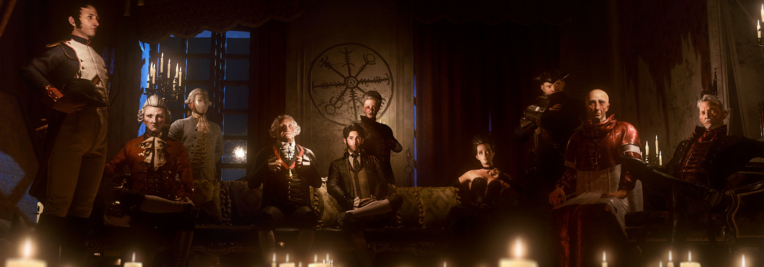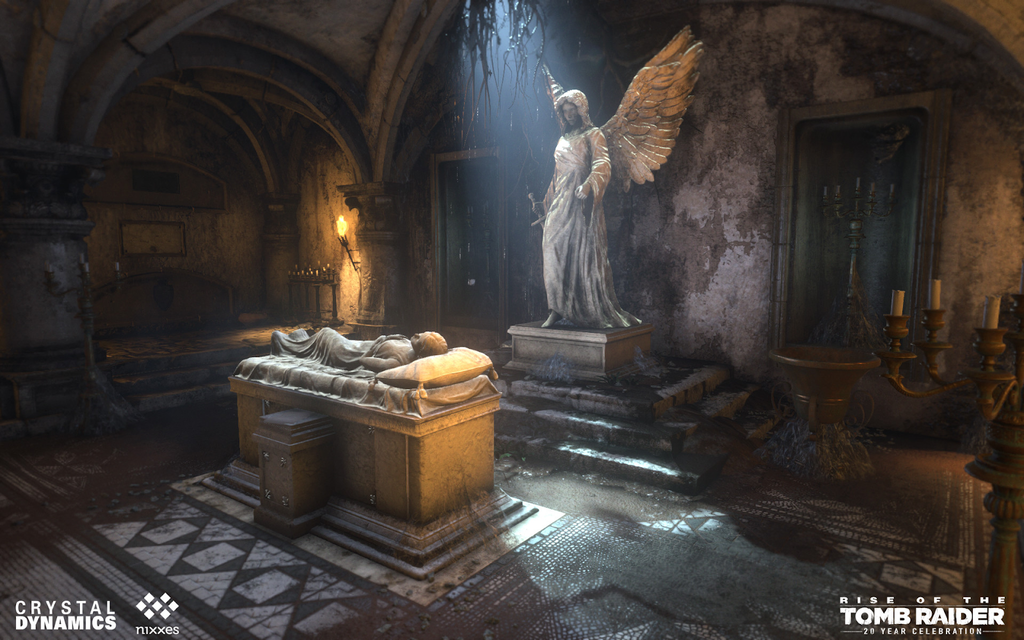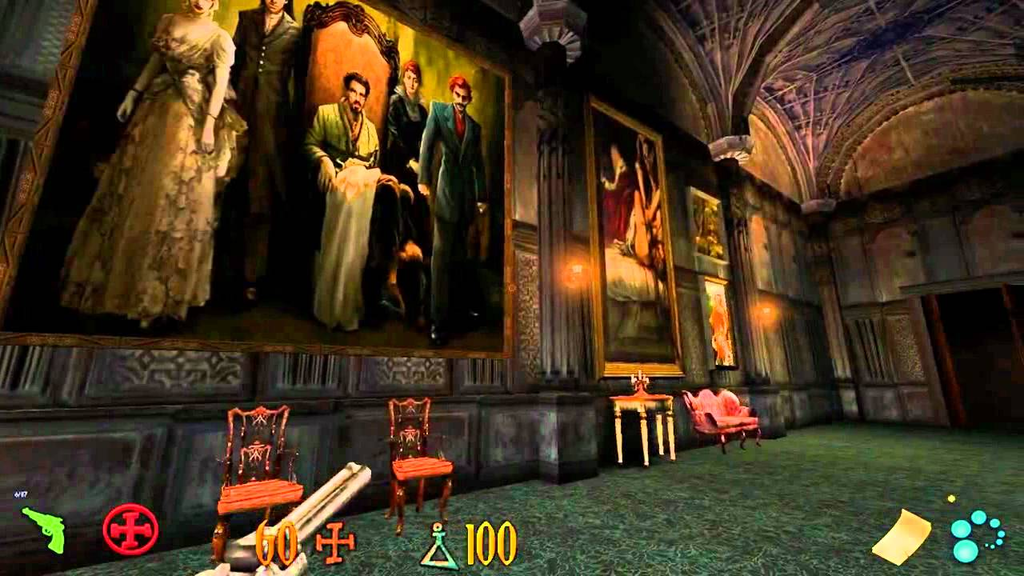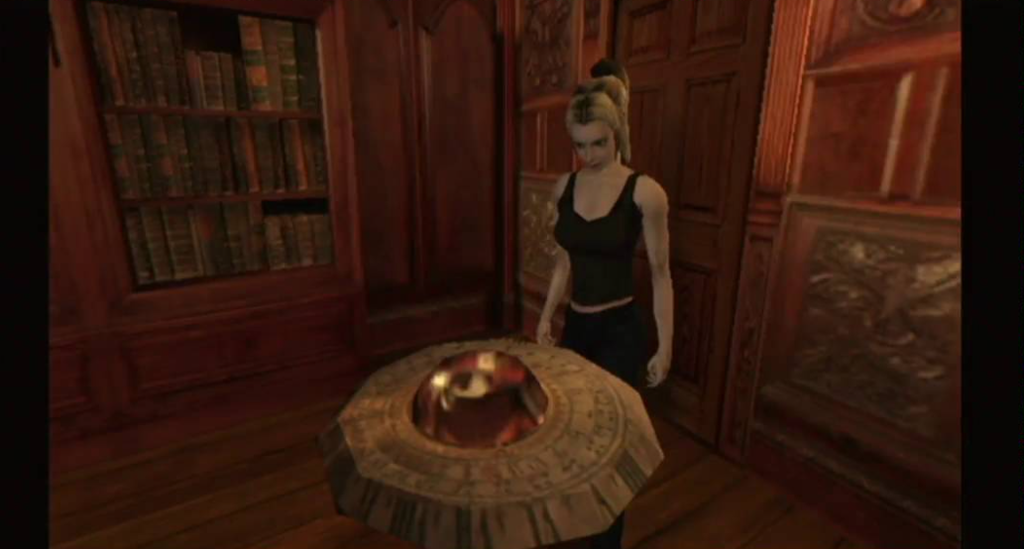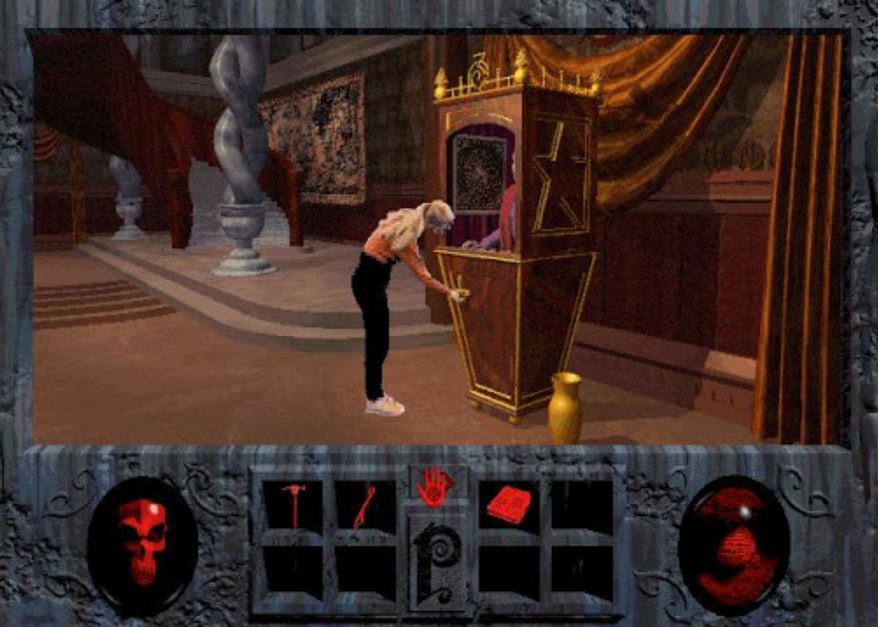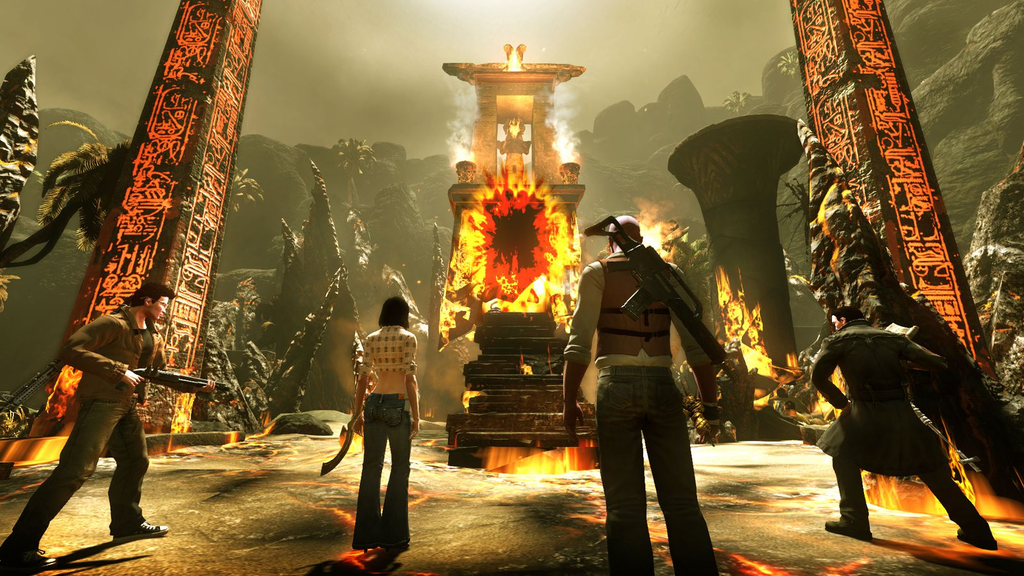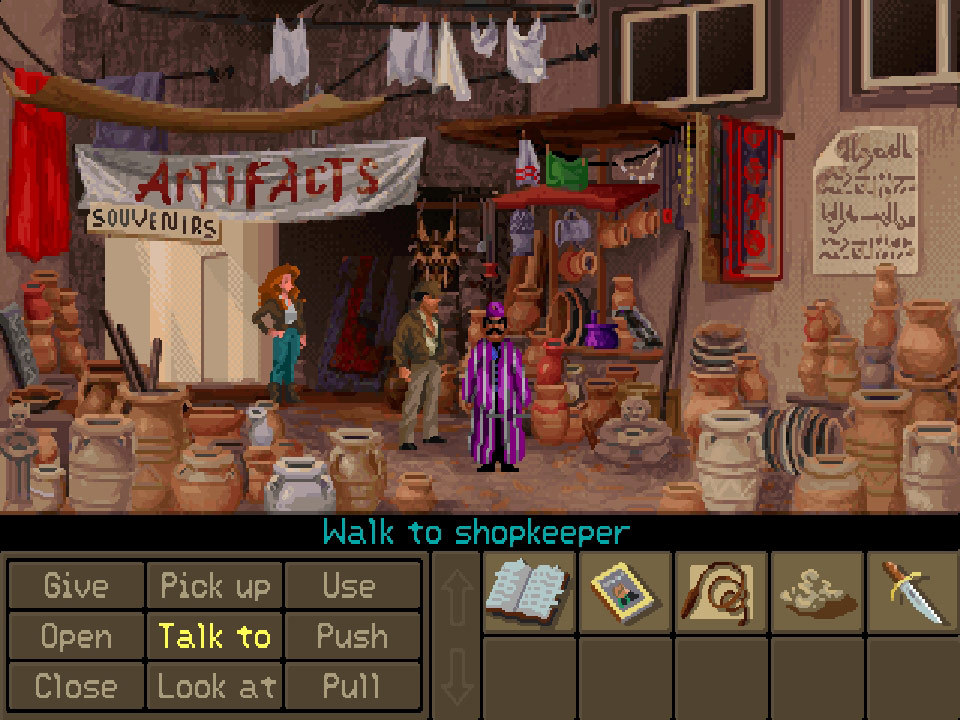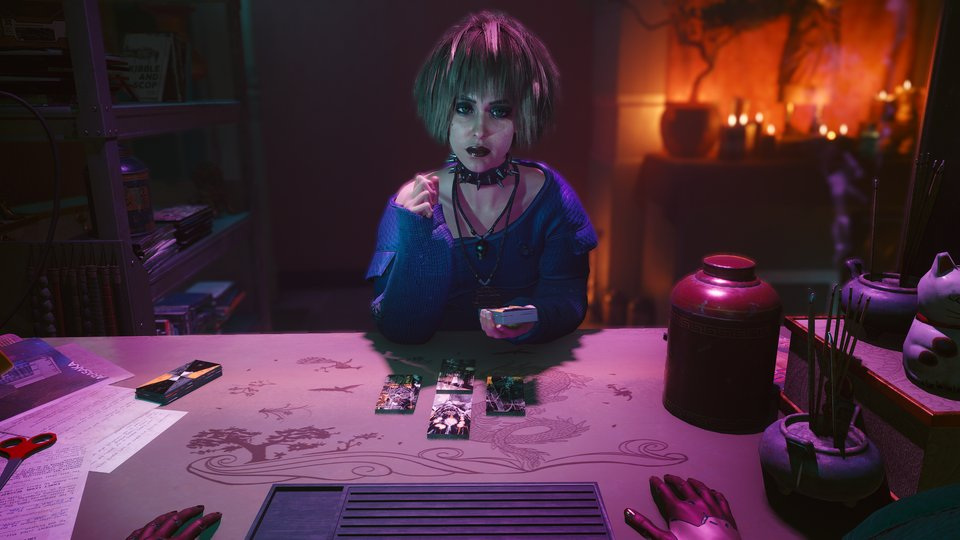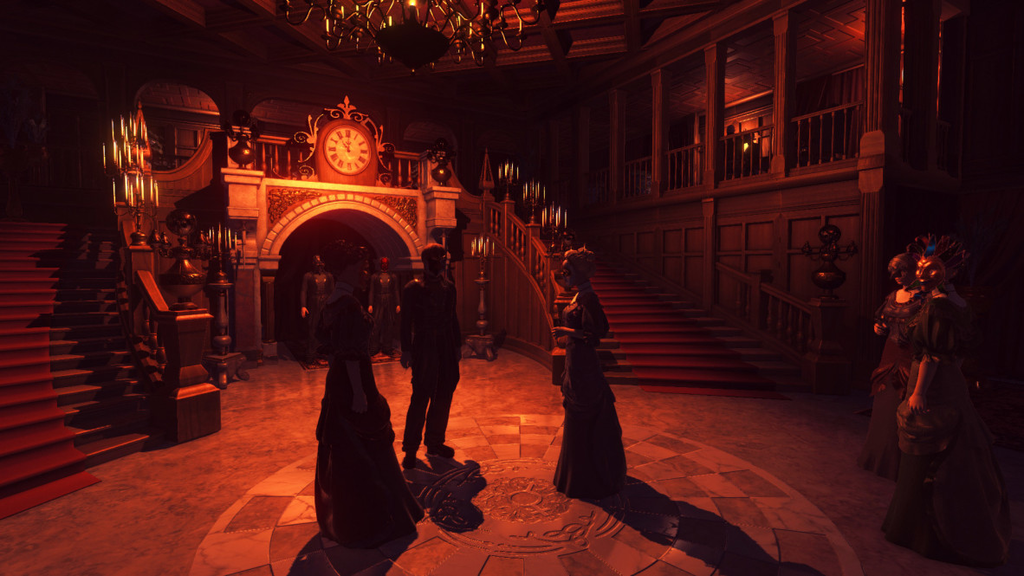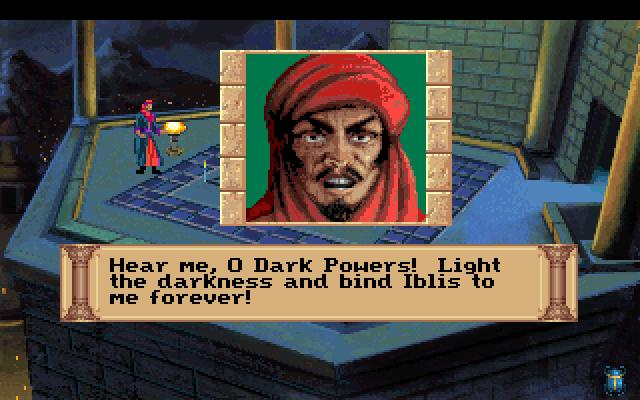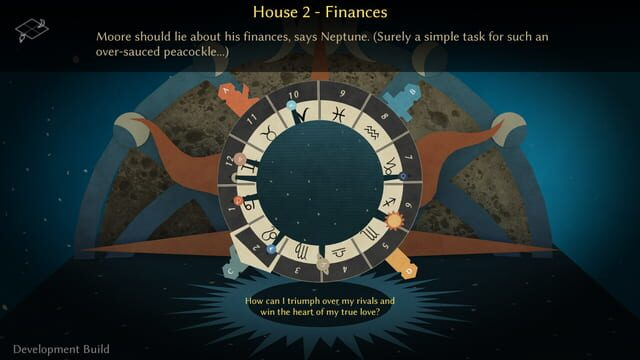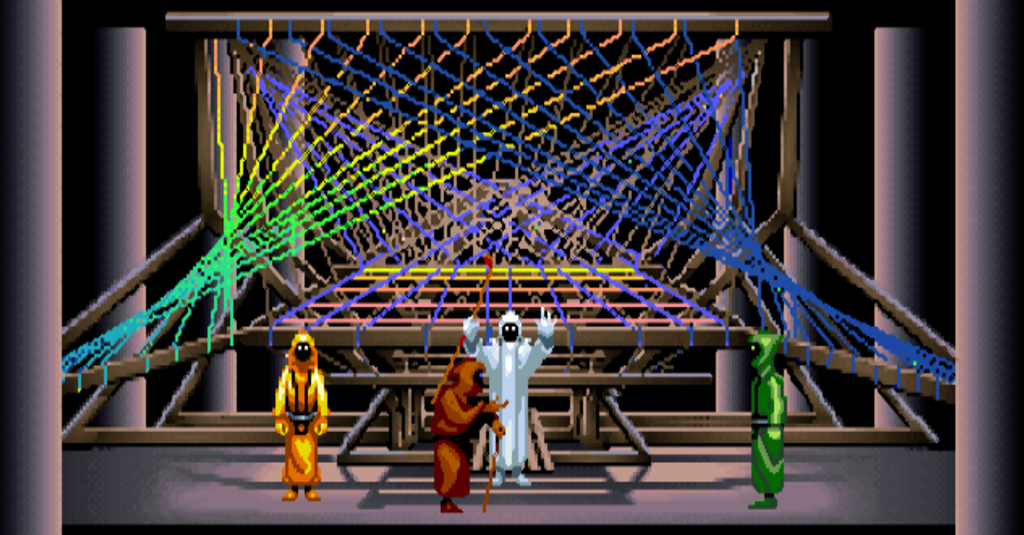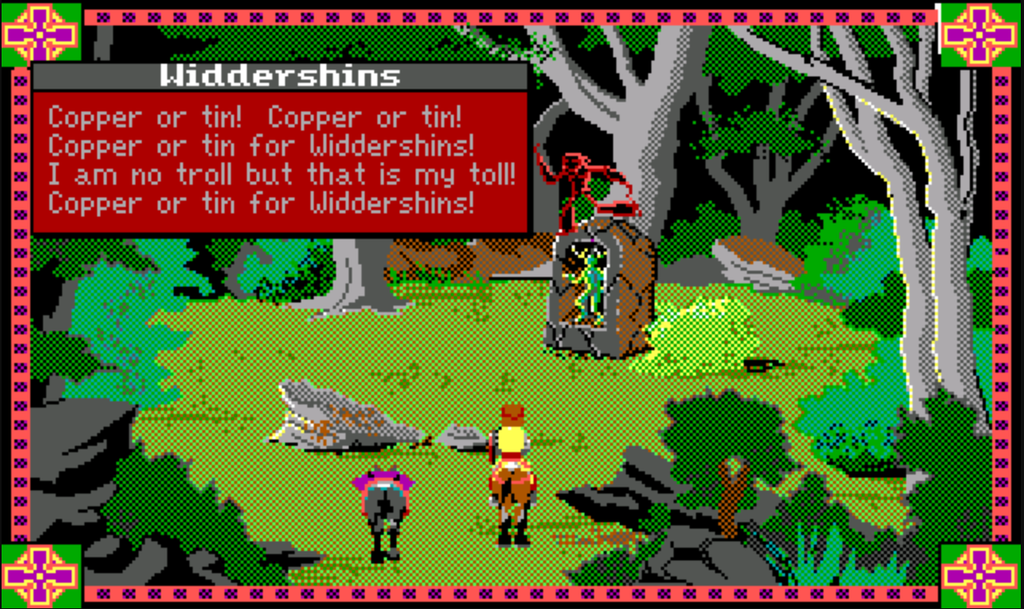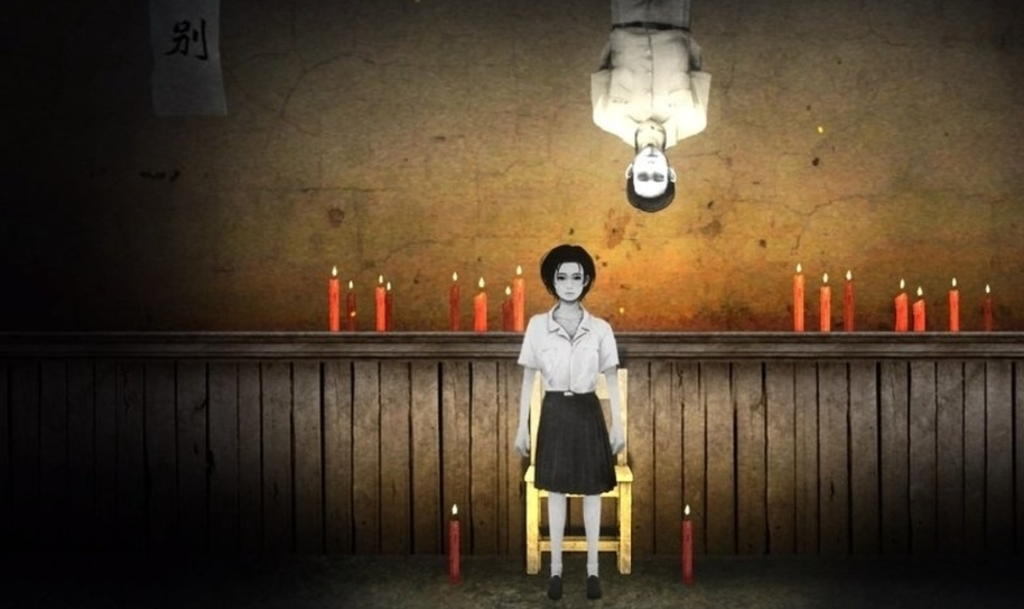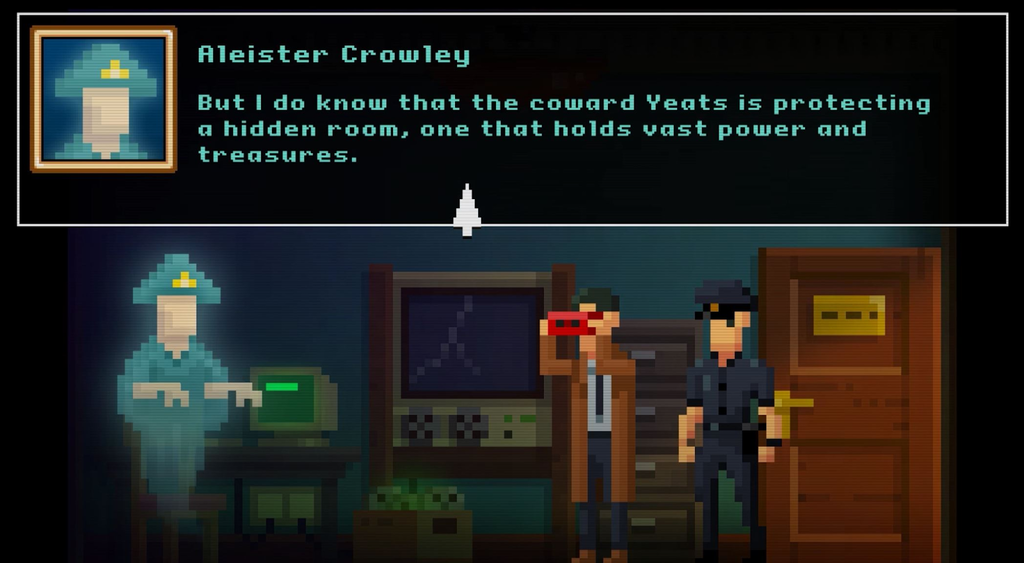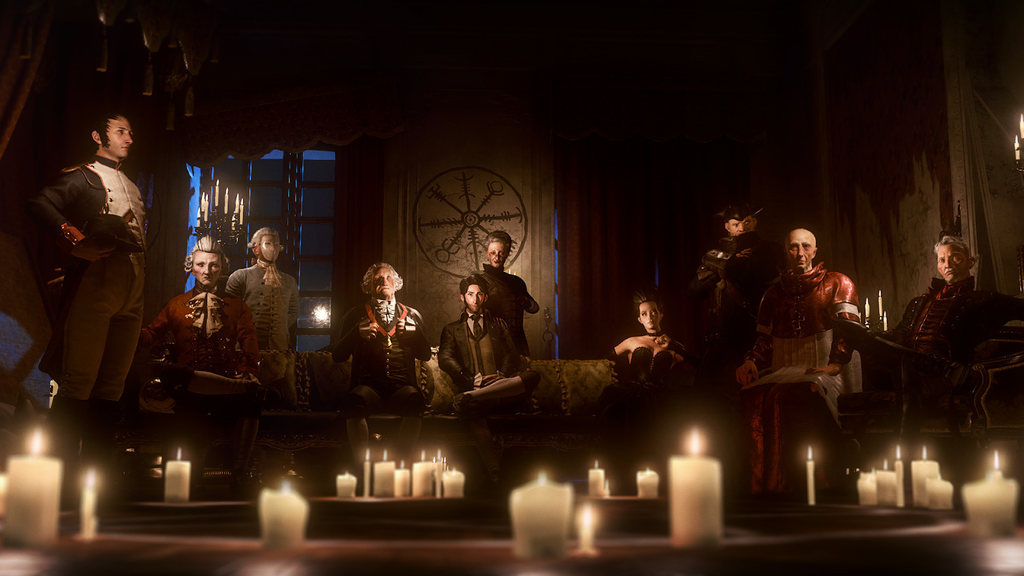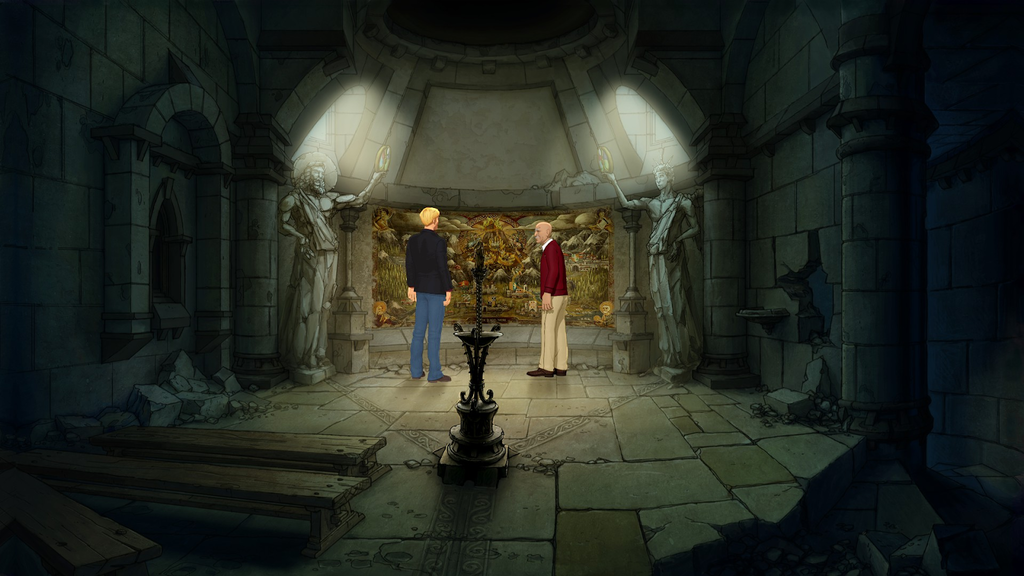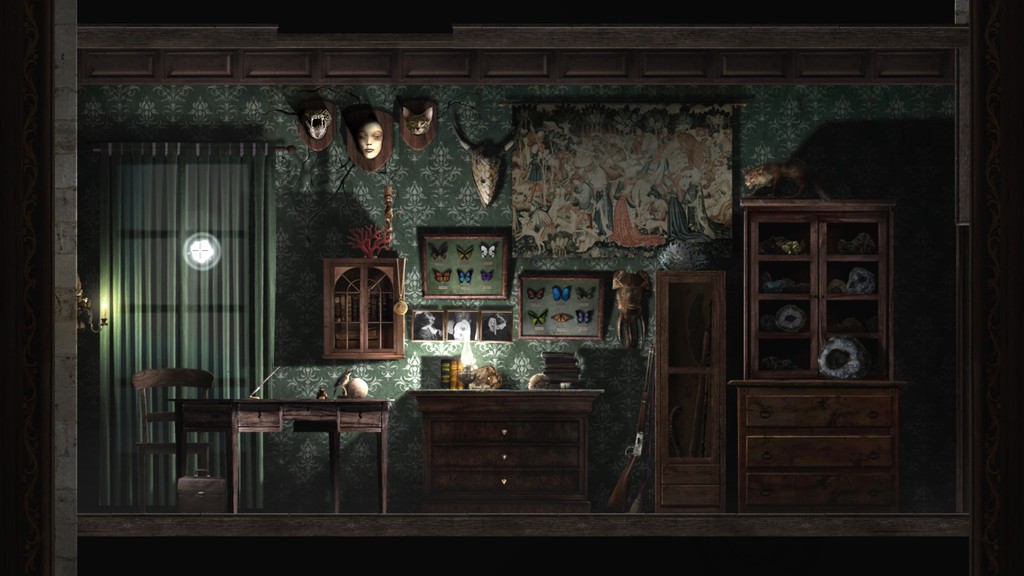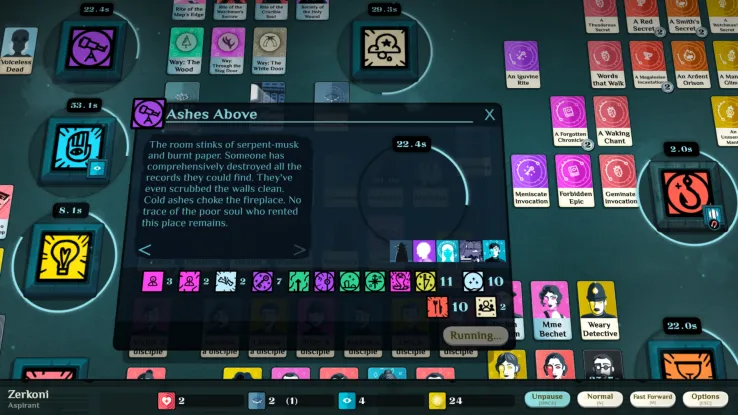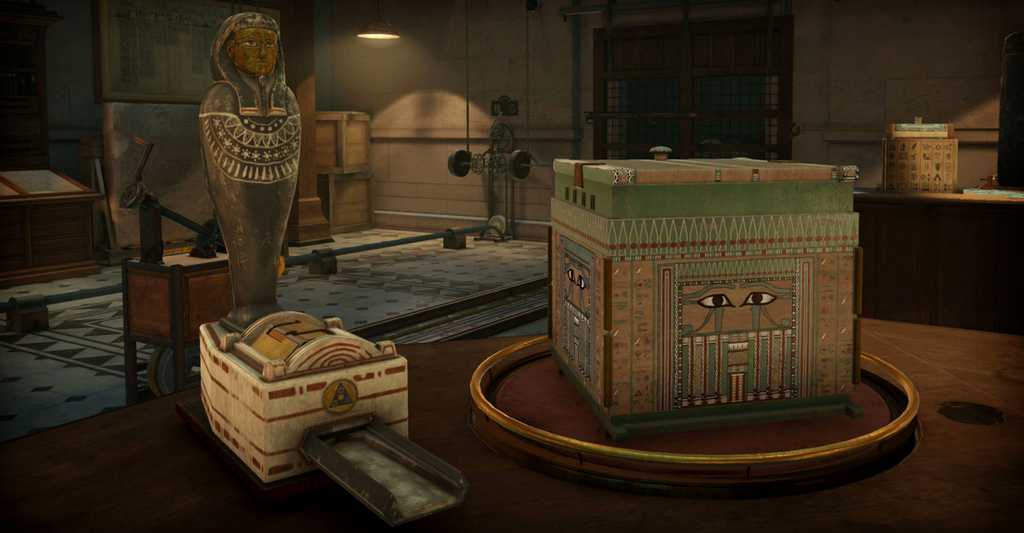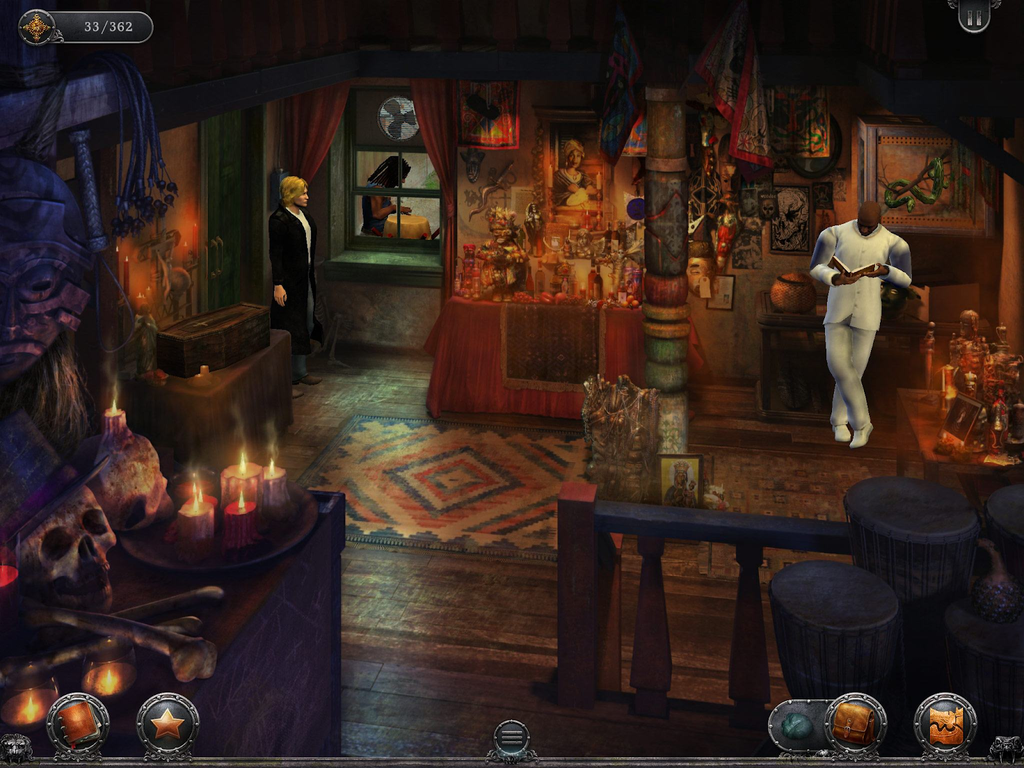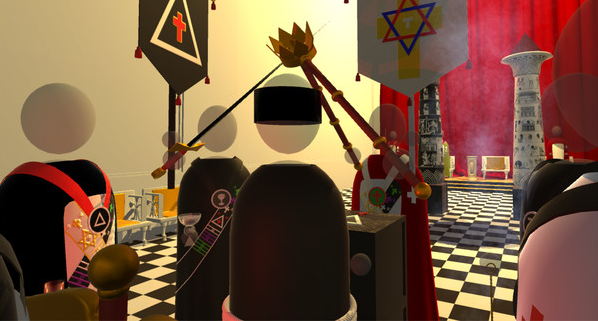Looking for games that involve the occult? Here’s a list of 20 of my favourite that use the evocative world of ceremonial magic, supernatural entities and mysterious cults as part of their narrative and gameplay.
To be included on this list games need to have the occult as a central (but not necessarily primary) component; and I’m avoiding those with just a generic fantasy approach to magic users. Not all of the examples on this list are serious games, but they do all treat the subject matter with an evocative weight – whether that just be through aesthetic or a deeper exploration of esoteric ideas and themes.
I’ve put them in order of my personal favourites, and in some cases I’ve even lumped whole series together. Which games you’ll prefer will depend more on your genre choice rather than individual rankings. I’ve also restricted the list to games I’ve actually played, so there’s certainly some excellent ones missing (let us know on Twitter!). Not all of the games necessarily have the best gameplay out there, either, as they have been heavily weighted for the centrality of occult themes contained.
If you haven’t seen them already, you might also be interested in my Top 10 Futurist Videogames and also the Complete List of Philip K Dick Videogame Adaptations.
So, let’s take a look at some of the best that occult gaming has to offer…
20. Tomb Raider & Assassin Creed Series
Let’s just get both of these out of the way first. There are so many occult and esoteric references in the Tomb Raider and Assassin Creed games that whole wiki sites are dedicated to them.
Both franchises use the occult as a central driver for their storylines, Assassin’s Creed in a more unique and interesting way that ties together all kinds of historical moments into a grand occult conspiracy. Tomb Raider tends to rely on a more pulpy McGuffin type approach – but still has its moments and the newer games in particular have some great narrative around occult artifacts and those seeking to control them.
The only reason I’m not placing these games higher, is because they’re so mainstream that you’ve likely played them already. Enough said, but they really do fit the bill for anybody seeking occult references in video games.
19. Clive Barker’s Undying (2002)
Undying is one of those games that falls onto most every best horror games list, particularly any focused on the occult. A ground-breaking first person shooter, this really set the tone when it came out for a more mature approach to the occult in videogames over the heavy metal tone of games like Doom.
The occult references here aren’t deep – ancient artifacts, stone circles, supernatural entities, invocations and cultists – but what makes this one stand out was how it broke new ground building up atmosphere and providing a more explorative nature to the first person shooter genre. It doesn’t hold up as well as the other older games on this list, but it’s worth a look even if just for its context in the historical development of first person shooters.
18. Eternal Darkness (2002)
Another landmark in the history of gaming, Eternal Darkness on the Gamecube is an interesting blend of action-adventure and survival horror that jumps across different eras to provide a story of occult power that spans throughout time. Taking on different characters and exploring widely different settings is definitely part of the appeal here, but Eternal Darkness also contained something that made it pretty revolutionary at the time.
Most well known for its fourth-wall breaking sanity effects (which are still unique to this day), the occult references in the game range from tomes bound in human skin; exotic religious locations that span the globe; crafting your own spells from a variety of sigils; and one of the few games I’ve seen that spell magick with a ‘k’.
17. Phantasmagoria (1995)
There are lots of Sierra adventure games on this list, which is not surprising given they represent the roots of the genre in many ways. The original Phantasmagoria was hugely popular on release, with its new FMV graphics and controversy around violent and mature scenes (which, compared to games like the Lust for Darkness series today, are pretty tame).
The occult references in it are heavily stereotyped, but they do build an eerie sense of hidden knowledge that blends the occult with stage magic, haunted house kitsch and serial killer motifs.
The stand-alone sequel Phantasmagoria: A Puzzle of Flesh really pushed the boat out in an attempt to be even more controversial than the first game, but unfortunately to the detriment of the game itself. It does have an interesting sci-fi/occult mix, though, and is another relatively rare instance of FMV gaming that you might want to experience.
16. Secret World (2012)
Unique in the world of occult gaming, this MMO was relatively cutting edge when it first came out; with its focus on more investigative and narrative driven quests than the mob hunts and courier quests of other MMO games such as World of Warcraft or Everquest 2 at the time.
Lots of occult and esoteric references throughout, including ceremonial magic and secret societies; along with the more typical Lovecraftian elements we’ve come to expect. The zones are a tour around mystical and mythological sites around the world; stretching from Massachusetts to Egypt, Transylvania and South America.
Still playable today (although I haven’t tried it since it first launched), it’s worth checking out as having a great atmospheric experience in the field of MMORPGs with its many horror and occult influences.
15. Indiana Jones and the Fate of Atlantis (1992)
Sierra weren’t the only company making great adventure games, of course, and the Indiana Jones series by Lucasarts are considered among the classics of the genre. While it might seem like the adaptation of the Last Crusade should get a spot on this list, given its focus on the Holy Grail, it’s the later game in the series – Indiana Jones and the Fate of Atlantis – that shows a more refined and enjoyable game.
This is partly because the story is an original one, not a film adaptation, so feels more interesting and fresh; but also because both the graphics and puzzles have been improved. There are those who might argue that Atlantis isn’t exactly an occult theme, entering more into the world of New Age high strangeness, but it is certainly closely related and the game itself revolves around themes of possession and deification that are interesting and relatively nuanced. All that wrapped in a Nazi Occultists theme that is a prominent part of occult history in the 20th century.
14. Cyberpunk 2077 (2020)
Yes, this game was about as slated as you can get on release and for pretty good reason. But, putting that aside (with two patches already released, it will get there), it’s still worth playing for those interested in seeing occult references in videogames because of one particular character: Misty.
Misty’s Esoterica and Chakra Harmonization store is a wonderful pastiche of new age kitsch with a grim cyberpunk aesthetic. But it’s not just the store that meets the bill for those seeking something more esoteric, but the conversations with the owner Misty are central to the game’s plot and even include a number of Tarot readings complete with individual cards laid out in front of you (and collected throughout the game world).
It’s a pretty cool and relatively unique example of new age occultism in video games; and the game itself really isn’t as bad as people have made it out to be either.
13. Lust for Darkness / Lust from Beyond
This duo of games aren’t the most innovative or deep, but they certainly take the prize for being the most NSFW games on this list. Taking their influence from a mix of Lovecraftian cosmic nightmares and Eyes Wide Shut, they are dark and mysterious; depraved and often utterly ridiculous, yet still compellingly atmospheric experiences.
There are all kinds of sigils, ceremonial items and occult rituals here along with plenty of demons and interdimensional beings worshipped as gods. The gameplay is pretty perfunctory, more walking simulator with stealth and puzzle elements than action game or detailed point-and-click adventure, but both games in the series build an immersive sense of being involved in the darker sides of the occult. A surreal narrative expression of a Black Lodge, if you will.
The focus on a dark secret society and the shock value of the mature scenes (which make the controversy over old games like Phantasmagoria look laughable) make these worth checking out. Warning: sexual violence.
12. Quest for Glory Series
Sierra have many classic adventure games and the Quest for Glory series is perhaps one of the most beloved. Trying to do something new, the series fused point-and-click and roleplaying genres into something that built up a grand narrative from game to game (even letting you import your character save throughout the whole series).
Although I’m not generally including games that include magic users in this list, the Quest for Glory series is included for two reasons. Firstly, it contains a lot of references to the elements, astrologers, ceremonial magic and alchemy that steer it away from generic fantasy worlds. Secondly, each game is inspired by mythology from different cultures and parts of the world: from Europe to the Middle East, through to Africa and the gothic landscapes of Eastern Europe.
The mythological elements combined with an appreciation for ceremonial magic, astrology and alchemy make it worth a mention. That and it’s a truly classic adventure game series that needs to be played if you haven’t experienced it!
11. Astrologaster (2021)
There are few games in this list that take something truly obscure and place it up front, but Astrologaster can certainly be considered one of them. Set in 16th-century London, the game centers around Simon Forman – an historical astrologer, alchemist and all-round occultist that is still relatively unknown, even though he was highly influential in the esoteric traditions of Europe at the time.
Placing a real-life occultist as your protagonist is good enough reason to have your game on this list; but when it’s also one as polished and engaging as this, then the spot is not only highly relevant but well deserved. Comedic in tone, it doesn’t fit into the usual point-and-click adventure or action-based games that make up most of this list; instead providing more of an interactive storytelling approach with a pop-up book aesthetic.
Indeed, it’s the relative lack of gameplay that stops it from ranking higher on this list… but it nails the theme and historical content, so is still recommended for anybody interested in exploring the occult in videogames.
10. Loom (1990)
Loom has many elements that will be familiar to occultists and, even though it doesn’t deal with real-world occult references directly, it seems remiss for it not to be on the list. The whole game is wrapped in a coherent cosmology and centers around the practice of magic in a way that is more nuanced than the usual offensive/defensive spells found in games.
With an interesting game system that revolves around musical notation, and plenty of mystical and magical themes that look at the construction of reality itself, Loom came out of left-field at the time and was so unique and original that it hasn’t even really been mimicked since. The minimalist design can be a bit off-putting at first, but it soon becomes a comfortable place that draws you into its world and makes you think like one who can magically alter reality around them.
9. Conquest of Camelot: The Search for the Grail (1990)
Continuing with the retro adventure game theme with an often overlooked Sierra game from its heyday, Conquest of Camelot is particularly interesting due to its mythological history setting that explores the myths of the Holy Grail from Glastonbury to the Middle East. There are mages and demons; holy knights and mystical forests; even a mischievous imp called Widdershins.
It sits on the cusp between the old text parser and mouse-driven adventure games, overcoming many of the annoyances of the text only early Sierra games – although there are still some arcade sections which can be particularly frustrating (and don’t get me started on the riddles). Overall though, a really cool journey through Grail mythology; narrated by none other than Merlin himself!
The sequel Conquest of the Longbow that looks into the Robin Hood mythology is also worth a play, although the esoteric elements are more subdued in the second game.
8. Detention (2017)
I don’t have any other games on this list that deal with occult influences from Asia, although there are no doubt dozens of great examples (that I haven’t yet played), but one that definitely belongs on this list is Detention. The game draws you in with its dark and gritty art style, while keeping you there with a story that keeps you pushing forward and has some quite dark moments.
A mysterious and ethereal side-scrolling adventure, the game is set in Taiwan during martial law in the 1960s and contains a whole host of interesting references to Taiwainese supernatural entities and occult practices. It’s a unique setting and definitely worth experiencing, particularly if you have any interest in ancestor worship and related practices.
Detention is not a particularly difficult game, but it does have a few head-scratchers along the way and every location is immersive and intriguing; with a few shocking scenes to be found through its roughly four hour play time.
7. The Darkside Detective Series
Winning the award for the most humorous occult references, The Darkside Detective series leans heavily into the dry pun-filled comedy of games like the Monkey Island series and combines it with every supernatural and occult reference they could cram in there. You’ll speak with the ghost of Aleister Crowley (who is annoyed with the spirit of W. B. Yeats), complete in his infamous ceremonial garb; and there are sigils and other demonic influences galore.
A relatively easy adventure game that keeps you moving forward with its episodic content, Darkside Detective is highly recommended if you want a more casual and laid back experience. One that will take you on a fun ride through all kinds of horror and sci-fi tropes without too much worry about getting stuck on obscure puzzles.
6. The Council (2018)
If you’re into secret societies and grand conspiracies, then The Council is for you. An episodic mystery game that is narrative and back-story heavy, this is worth spending a few evenings with in the same way that you might binge watch your current favourite Netflix show.
With references to many different kinds of esoteric traditions, from Lovecraft to Freemasonry and the Illuminati, this is an immersive and engaging game that draws you in with a focus on exploration, character development and deep conversations with plenty of hidden mystery to be found. There’s even a character class labelled specifically ‘Occultist’ – so it undoubtedly fits the bill here!
5. Broken Sword Series
There was a period where it seemed the only esoteric references in the public eye were Witches and Templars. The Broken Sword series leans heavily into the latter, taking a lot of influence from (in)famous books such as Holy Blood, Holy Grail that sprung onto best-seller lists and created a wave of mainstream interest in esoteric conspiracies that spanned throughout history.
With central motifs of secret societies and hidden knowledge throughout, it’s interesting seeing them tie in a lot of speculative and sensationalist ideas around Neo-Templars; the Assassins; Baphomet; the Voynich Manuscript; and the Gnostic Gospels – with locations spanning the globe from Glastonbury to Mayan pyramids.
All the games in the series are considered good examples of the point-and-click adventure genre, but it’s worth checking out the first and fifth games in particular to see how the series progressed (Serpent’s Curse is a beautiful game). If you are looking particularly for occult references, the fifth game in the series is fantastic and quite detailed on that front. There’s also an excellent ‘Director’s Cut’ remake of the first game for those playing today.
4. Goetia (2018)
The occult influence on this game is literally written on the tin; and it’s not just a catchy name, either, as the influence extends into the visuals and narrative with its references to the darker areas of ceremonial magic and central use of Solomonic sigils. Ritual magic plays a central part in the story and the game oozes with atmosphere in a dusty, haunted house kind of way.
An immersive and engaging adventure game, with some interesting new ideas and mechanics that are wrapped in an authentic occult theme. Definitely one to pick up if you’re interested in these things, particularly as it’s quite cheap and available on most platforms.
3. Cultist Simulator (2018)
Cultist Simulator is an incredibly engaging and deep game that looks simple, but hides a surprising amount of depth and immersion behind its card-based aesthetic.
As far as occult references are concerned, this game has a tonne: from grimoires and magical rituals, through to mystical experiences and secret societies. It takes a lot of influence from the likes of H. P. Lovecraft, but goes a long way to developing its own relationships between different elements that build upon one another as the game progresses until you have a whole host of staggered timers and layered interactions.
A highly replayable game that draws you in and really engages your sense of imagination and wonder, along with a bit of foreboding dread about things unknown, Cultist Simulator is an original take on the well-known Lovecraftian genre that deserves all the attention and praise it has received. Plus, I don’t think there are any other games out there that have ‘Ascension’ as a possible win condition.
2. The Room VR: A Dark Matter (2020)
Current gen VR headsets have really crossed the threshold where you can now be fully immersed in the experience. There are lots of horror games in VR, but I’m too much of a coward to play most of them so don’t know which ones best incorporate occult references… However, one that I have played and absolutely love is The Room VR: A Dark Matter.
You will likely be familiar with the Room series, which takes you through a series of intricate puzzles boxes and other interactive objects with deep mechanical intricacies. The VR entry ramps this up considerably and the use of sigils and other occult aesthetics throughout really make it a wonderfully immersive experience that feels deeply esoteric even though it is essentially a puzzle game.
This is because the puzzles themselves are made up of evocative rooms, from Egyptian statues and ornaments to Templar knights and gloomy churches, and within each room are numerous smaller puzzle boxes and items. Most all of them with some kind of occult or at least mysterious motif and context to them. On top of this are interdimensional symbols and apparitions that guide you through the narrative of the story along with mysterious letters from ‘The Craftsman’.
Easily one of the best VR games on the market today, if you are at all interested in experiencing the best that occult gaming has to offer then you must find a way to check out The Room VR: A Dark Matter.
1. Gabriel Knight Series
A classic point-and-click adventure series that also happens to be steeped in esoteric lore, the Gabriel Knight series is for me the best example of the occult in videogames that has been produced to date. With each game in the trilogy focusing on different occult topics there are a whole host of occult references throughout, many of them well researched and accurate with others on the more fantastical or wildly speculative side.
This series places so highly because it is these occult themes themselves that really drive the games forward. They build a sense of mystery and atmosphere that heightens the investigative nature of the gameplay and draws you directly into each story. For many people, the first Gabriel Knight game (Sins of the Father, 1993) was their introduction to a more educated view of New Orlean’s Voodoo than could be found in any film or other entertainment at the time. Even though it utilised the dark and malevolent voodoo trope, it showed multiple sides of the tradition in a nuanced and respectful manner.
Each game is also interesting because it uses different technology, from traditional pixel-graphics adventure game (with a great HD remake and voice acting by Tim Curry); to one of the best examples of an FMV game ever made; through to making the move to fully 3D environments and character models. There’s a history of adventure videogames in this series, over and above the engaging occult themes.
Bonus: Golden Dawn VR Initiation (2017)
Although not actually a game, I’d be remiss if I didn’t mention this VR-experience. Taking the Golden Dawn Neophyte initiation ritual as published by Israel Regardie, the viewer can take a passive role experiencing the initiation through the eyes of any of the roles present (including the candidate) or can walk freely around the temple while the ceremony takes place.
It isn’t exactly the highest quality and most fleshed out VR experience, but a lot of work for what is a passion project has certainly been put into creating the various regalia and getting all the movements and script of the ritual in place. An interesting educational piece for those interested in the mechanics of esoteric initiation and how it might be experienced from different perspectives.
I’ve only included games on this list that I’ve played and I’m always up for more
let us know what has been missed on Twitter!

